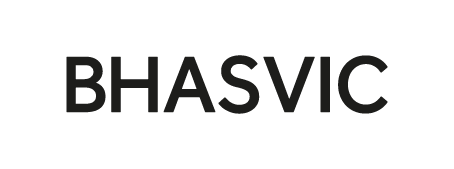English Literature A Level
Qualification: GCE A Level in English Literature
Exam Board & Specification Code: WJEC Eduqas; Specification
Course Entry Requirements: 4 in English Language GCSE. English Literature A level and English Language A level may be studied together but it is not possible to study the English Language and Literature A level in combination with another English course.
Please make sure that you have understood the overall entry requirements to study at BHASVIC. These are available here and outline the GCSE grades you need to take up one of the Study Programmes at the college.
Length and size of qualification: 2 year single course
Timetable hours: 4.5 hours per week
Assessment method: 3 x 2 hour exams (80%) plus coursework assignment (20%)
BHASVIC Department: English
What will I study?
You will explore a range of exciting and challenging literary texts, including novels, poetry and plays from across the last 500 years as well as 21st century texts, all of which have stood the test of time and proved themselves to be great writing. You willl study literature that has "never finished saying what it has to say." You’ll be encouraged to read widely, independently and in-depth.
Is this course right for me?
Those who love reading literary texts, thinking about how they are written, who wrote them and what other readers think about them, discussing and writing about what they might mean should take this course.
Where next?
A good grasp of the English language, literacy and communication is essential in many careers. This subject will help to develop your critical and interpersonal skills. Every business, whether in the publishing industry, marketing or financial sectors, needs staff to present products and services in a professional and attractive manner. If you enjoy writing, you may find that you already have a number of the skills that employers are looking for. More and more businesses are increasing their online presence, and need articulate individuals to promote their products and services to a global audience. Roles can include apprenticeships in legal services, journalism, recruitment, digital marketing and social media amongst others. For students who wish to continue their studies to degree level there are a large number of options available, these include Digital Copywriter, Editorial Assistant, English as a Foreign Language Teacher, Web Content Manager. Possible future careers where English Literature would be useful include: Academic Librarian, Advertising Account Executive, Arts Administrator, Information Officer, Primary School Teacher, Public Relations Officer etc. Useful websites to research careers and wider progression options could include NCTJ, All About Careers and The Apprenticeship Guide.
ApplyLast year, 14 BHASVIC students studied English Literature at 11 different unis. 22 students studied combined English at 13 different unis.
English remains year on year top ten subjects for University study. Popular universities include Bristol UWE, Liverpool, Manchester, Brighton and Sussex. Students went onto study English and both Oxford and Cambridge.
Students study English Language, English Literature or a combination of both at A level.
Should I study English Literature at degree level?
Do you enjoy reading and analysing books, plays and poems and sharing your ideas with others? advertising? If so, you may be interested in studying English literature, or language, or combining the two.
Should I study English Language at degree level?
Are you interested in how children acquire language, how English is structured and how it can be used for communication, such as in creative writing or advertising?
Types of English degrees
Due to the nature of the course with a lot of private study and reading/writing time, English students tend to be in classrooms and lecture halls a total of 8 hours a week.
You can choose to study straight English Literature or combine to an English degree. You can specialise in literature such as Scottish Literature (Glasgow), Classical Literature (Leeds) or German Literature (Queen Marys). You can choose to study straight English Language or combine or specialise in creative writing and linguistics. Closely allied are a range a of journalism, media and screenwriting degrees.
Entry Requirements
A-levels (or equivalent) usually required
English literature / language / Lang & Lit
Modules might include: Literature
- Shakespeare in performance
- Renaissance literature
- Modernist fiction
- Creative writing: drama
- British romanticism
- Literary and cultural theory
Modules might include: Language
- English Syntax and Phonology
- Writing Identities
- Language, Mind and Brain
- Accents and Dialects,
- Child Language Acquisition
- Framing the News
Top Universities for English
Durham, St Andrews, Cambridge, Oxford, UCL
Exeter, Newcastle, Loughborough, Surrey – all very high student satisfaction scores
Nottingham, Lancaster, Birmingham, Sussex- all with top graduate prospects
Many of our students choose a combined degree - applications from our students have included:
- American Literature with Creative Writing
- English Literature/Anthropology
- Theatre Studies/English Literature
- Journalism, Media and English Literature
Example entry requirements (please check):
A-Level/BTEC equivalents:
Royal Holloway English UCAS Points: 128-160
Reading English Literature B.B.B
Brighton English Language UCAS Points: 96-104
Why not try a foundation degree or higher apprenticeship?
Plymouth English (Foundation) UCAS Points: 32-48
Some examples of English-related degrees that our BHASVIC students have gone onto study in the past few years are:
- American Literature with Creative Writing
- Classics II and English
- Comparative Literature
- Creative Writing and English Literature
- Culture, Criticism and Curation
- Drama and English (with study abroad)
- English and French Law (4 years)
- English and History
- English and Sociology
- English and Spanish
- English and Theatre Studies
- English Language and Linguistics with a Year Abroad
- English Language and Literature (with a study abroad year)
- English Literature/Anthropology
- English with Study in North America
- Film Studies and Screenwriting
- German and English Literature
- History of Art/Scottish Literature
- Journalism & Creative Writing
- Journalism, Media and English Literature
- Philosophy and Literature
- Theatre Studies/English Literature
How BHASVIC helps: We have a wide range of information and resources to support students applying for university including subject area guides, personal statement and UCAS resources, super-curricular activity guides, open day and bursary information. We also cover university research, careers, art foundation and all other destinations in depth in tutorial and students can choose an appropriate pathway for them in the second year from UCAS, Employability & Enterprise, Visual Arts, Oxbridge and Medics. Our Spring Futures Fair brings in a huge number of university visitors with workshops and information stands and departments will bring speakers in wherever possible.
Studying English provides an array of subject-specific & transferable skills, highly sought after by employers.
Jobs where an English degree would be useful include:
- Academic librarian
- Arts administrator
- Film director
- Information officer
- Marketing executive
- Public relations officer
- Records manager
- Social media manager
- Teacher
Career Prospects
As good communication is so important to modern business, you can find English students in all parts of the economy. There isn't a lot of difference in terms of outcomes between taking English language or English literature, so choose the one that suits you and don't worry about whether one is more likely to get you the job you want than the other.
Those studying English will also learn a number of useful transferable skills including communication, time management, research, critical thinking and project management. These skills are in demand from an array of employers including schools, marketing, PR and advertising agencies, publishers, magazine and newspapers, government, banks, theatres, the film industry and market researchers.
Developing your Skills
As English is a non-vocational course, the skills developed outside your study are also vital in developing a well-rounded CV. While at college and university, for example, many English students write for student newspapers and magazines, get involved with student radio or film societies, or volunteer in the community or local schools. Evidence of any skills gained from work experience and extracurricular activities, as well as through study, can help boost your job prospects.
Examples of apprenticeships and opportunities include:
- Project Editor / Sub Editor
- Rare Books Valuer and Logger
- In House Journalist
How BHASVIC helps: We have an excellent Careers Hub and careers advisors who are available for appointments through student services. Local jobs are advertised and they will advise on skills and specialist areas such as degree apprenticeships. Students can choose an appropriate pathway for them in the second year from UCAS, Employability & Enterprise, Visual Arts, Oxbridge and Medics. Our Spring Futures Fair brings in a huge number of careers & apprenticeship visitors with workshops and information stands and departments will bring speakers in around the subject area.
You will gain many transferable skills studying English that will be valued in the workplace including:
Research / analytical skills, written & oral communication skills, including constructing arguments, assess different perspectives, theories & interpretations, planning skills
- Construction
- Creative & Cultural
- Digital (includes IT and Technology)
- Engineering & Manufacturing
- Healthcare (includes Bio Life Sciences and Pharmaceutical)
- Visitor & Hospitality
- Land-based (includes Agriculture and Viticulture)
- Green Skills
Degree choices that match the Local Skills agenda for Creative & Cultural include:
- English and Creative Writing
- English and Film & Television Studies with Employment Experience
- English and Music
- English Language and Linguistics
- English Language and Literature (with a study abroad year)
Career choices that match the Local Skills agenda for Creative & Cultural include:
- Journalist
- Social Media Officer
- English Teacher
- PR Officer
- Film and Television
How BHASVIC helps: Skills Week in A1 helps students build skills in the workplace and a focus on developing skills through tutorial in A1 and A2 supports students in writing outstanding Personal Statements and CVs. We know our students have already gained a wide variety of skills at home and with extra-curricular activities and will increasingly take up jobs. Our focus is on supporting them to evidence skills already gained, identify gaps and ensure that they transfer that to CVs and applications. This is in partnership with every curriculum area.

